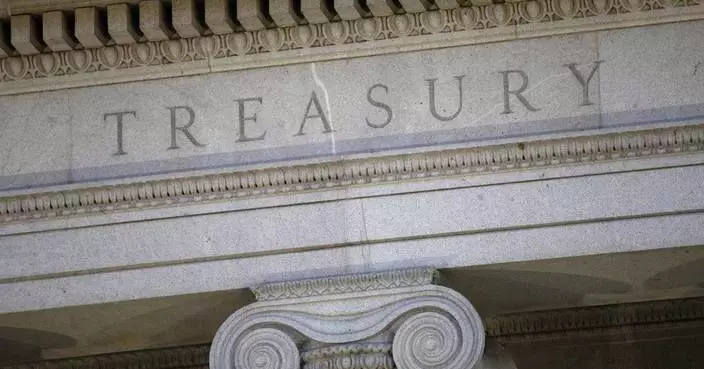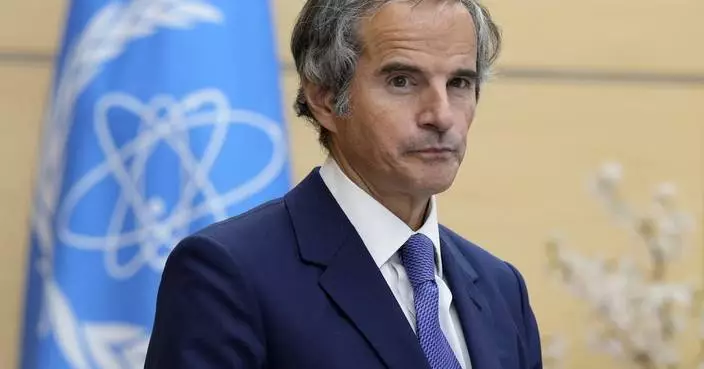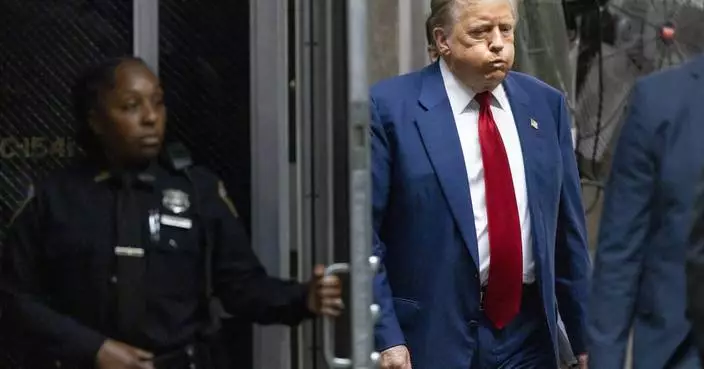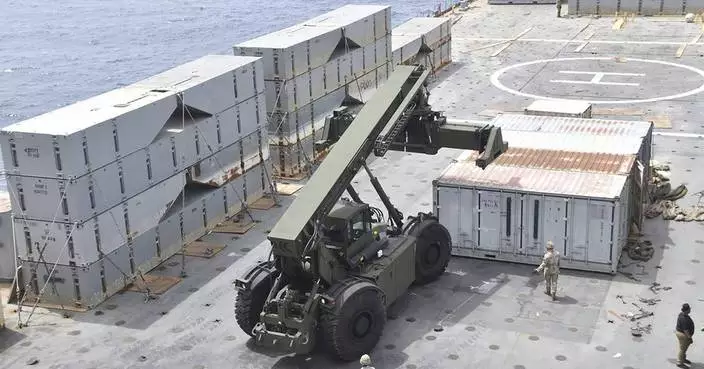The Latest on the sentencing of a California couple who starved and abused a dozen of their children for years (all times local):
9:50 a.m.
Some of the children of a California couple convicted of torturing them for years are expected to be in court for their parents' sentencing.
It's the first time the children will have been seen publicly since the arrest of their parents, David and Louise Turpin. They have the right to address the court to say how they've been impacted by the abuse.
Judge Bernard Schwartz says they're not allowed to be filmed or photographed by assembled members of the media.
The Turpins are expected to be sentenced to at least 25 years in prison Friday. They pleaded guilty in February to torture and other abuse that was uncovered when their 17-year-old daughter jumped out a window and called 911.
Most of the Turpins' 13 children were severely underweight and hadn't bathed for months. They ranged in age from 2 to 29.
12:01 a.m.
A California couple who starved a dozen of their children and shackled some to beds face sentencing for years of abuse.
David and Louise Turpin are due Friday in Riverside County Superior Court for a proceeding that is largely a formality.
The couple pleaded guilty in February to torture and other abuse and agreed to serve at least 25 years in prison.
The abuse was uncovered last year when one of the couple's 13 children jumped out a window and called 911. The 17-year-old girl had lived such an isolated life that she didn't know her address and didn't know what medication meant.
Most of the children ranging in age from 2 to 29 were severely underweight and hadn't bathed for months. The house reeked of human waste.
UNITED NATIONS (AP) — Russia has circulated a U.N. resolution calling on all countries to take urgent action to prevent putting weapons in outer space “for all time” a week after it vetoed a U.S.-Japan resolution to stop an arms race in space.
The Russian draft resolution, obtained Wednesday by The Associated Press, goes further than the U.S.-Japan proposal, not only calling for efforts to stop weapons from being deployed in outer space but for preventing “the threat or use of force in outer space,” also “for all time.”
It says this should include deploying weapons “from space against Earth, and from Earth against objects in outer space.”
Russia’s U.N. Ambassador Vassily Nebenzia told the Security Council when he vetoed the U,S.-Japan draft that it didn’t go far enough in banning all types of weapons in space.
The vetoed resolution focused solely on weapons of mass destruction including nuclear arms, and made no mention of other weapons in space.
It would have called on all countries not to develop or deploy nuclear arms or other weapons of mass destruction in space, as banned under a 1967 international treaty that the U.S. and Russia ratified, and to agree to the need to verify compliance.
Before the U.S.-Japan resolution was put to a vote on April 24, Russia and China proposed an amendment that would call on all countries, especially those with space capabilities, “to prevent for all time the placement of weapons in outer space, and the threat of use of force in outer spaces.”
The vote was 7 countries in favor, 7 against, and one abstention and the amendment was defeated because it failed to get the minimum 9 “yes” votes in the 15-member Security Council required for adoption.
U.S. Ambassador Linda Thomas-Greenfield told the council after the vote that Russian President Vladimir Putin has said Moscow has no intention of deploying nuclear weapons in space.
“Today’s veto begs the question: Why? Why, if you are following the rules, would you not support a resolution that reaffirms them? What could you possibly be hiding,” she asked. “It’s baffling. And it’s a shame.”
Putin was responding to White House confirmation in February that Russia has obtained a “troubling” anti-satellite weapon capability, although such a weapon is not operational yet.
Russia’s U.N. Ambassador Vassily Nebenzia said after casting the veto that the U.S.-Japan resolution cherry picked weapons of mass destruction.
He said much of the U.S. and Japan’s actions become clear “if we recall that the U.S. and their allies announced some time ago plans to place weapons … in outer space.”
Nebenzia also accused the U.S. of blocking a Russian-Chinese proposal since 2008 for a treaty against putting weapons in outer space.
Thomas-Greenfield accused Russia of undermining global treaties to prevent the spread of nuclear weapons, irresponsibly invoking “dangerous nuclear rhetoric,” walking away from several of its arms control obligations, and refusing to engage “in substantive discussions around arms control or risk reduction.”
Much of the Russian draft resolution is exactly the same as the U.S.-Japan draft, including the language on preventing an arms race in space.
It calls on all countries, especially those with major space capabilities, “to contribute actively to the objective of the peaceful use of outer space and of the prevention of an arms race in outer space.”
Thomas-Greenfield said the world is just beginning to understand “the catastrophic ramifications of a nuclear explosion in space.”

FILE - U.S. Ambassador to United Nations Linda Thomas-Greenfield speaks on Thursday, April 18, 2024, in Tokyo. The U.N. Security Council is set to vote Wednesday, April 24, 2024, on a resolution announced by Thomas-Greenfield, calling on all nations to prevent a dangerous nuclear arms race in outer space. It is likely to be vetoed by Russia. (AP Photo/Eugene Hoshiko, Pool, File)










